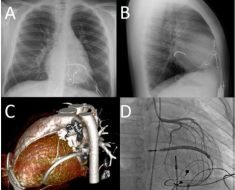Cervical cancer, the second most common cancer affecting women worldwide, is caused by infection with the Human papillomavirus (HPV), which is transmitted sexually. Reflecting the wide reach of the HPV virus, it has been estimated that over 80% of sexually active females will be infected with HPV in their lifetimes. While HPV infection is often harmless, clearing up on its own, persistent infection can lead to development of cervical cancer.
A development in the prevention of cervical cancer in women in Australia was the introduction of the HPV vaccine, which was made available to young women as part of a national school-based vaccination program in 2007. Despite this medical advancement, regular Pap screening is still required to provide optimal protection from cervical cancer.
At the time of this study, participation in Pap screenings among Australian women had been declining steadily since 1996. The introduction of the National HPV Vaccination Program in Australia in 2007 raised concerns that the declining rates of Pap screening participation among young women would be exacerbated by the availability and promotion of the vaccine. However, a survey conducted in 2009 showed that 96% of vaccinated women aged 18-28 years knew that Pap screening was still suggested after vaccination. More recent data suggests that knowledge of the need for screening did not translate into corresponding screening-seeking behavior.
Dr. Spring Cooper, a professor at the CUNY Graduate School of Public Health & Health Policy, led a recent study that explored the extent of knowledge among young women in Australia on HPV, HPV vaccinations, and Pap screening guidelines. The study aimed to identify the knowledge, attitudes, and behaviors influencing young women’s participation in Pap screenings. The findings were published in the International Journal of Women’s Health and Reproductive Sciences.
Cooper and her team conducted semi-structured interviews with 12 women who had been in school and offered the HPV vaccination through the Australian National HPV Vaccination Program. The transcripts of the interviews were analyzed and recurring barriers and facilitators to seeking Pap screenings were identified. Psychological barriers, the most frequently cited barrier amongst the participants, refer to self-limiting beliefs such as a mental reluctance to seek the Pap screening, or a reluctance to disrobe in front of a doctor for the examination. The other barriers included concern about the physical discomfort involved, lack of time, lack of information about where to access a Pap screening, and concerns about the potential costs involved. On the other hand, several facilitators were identified that encouraged the participants to seek screenings. These included focusing on the long-term benefit of screening, maternal support, discussions with friends, having an established relationship with a regular doctor with whom they felt comfortable discussing the issue, and previous Pap screening experience.
The study found that all of the participants understood that Pap screening was necessary regardless of vaccination status. Despite this knowledge, the adherence to the guidelines for screening varied due to a range of barriers and facilitators. The participants themselves made several recommendations in the course of the interviews for encouraging young women to adhere to the Pap screening guidelines. The recommendations included increasing knowledge, improving education, reducing stigma, and improving accessibility to screenings.
Source: Read Full Article





